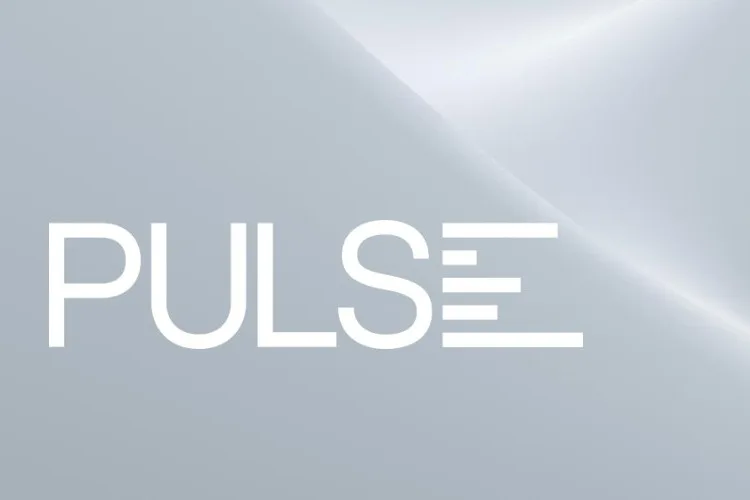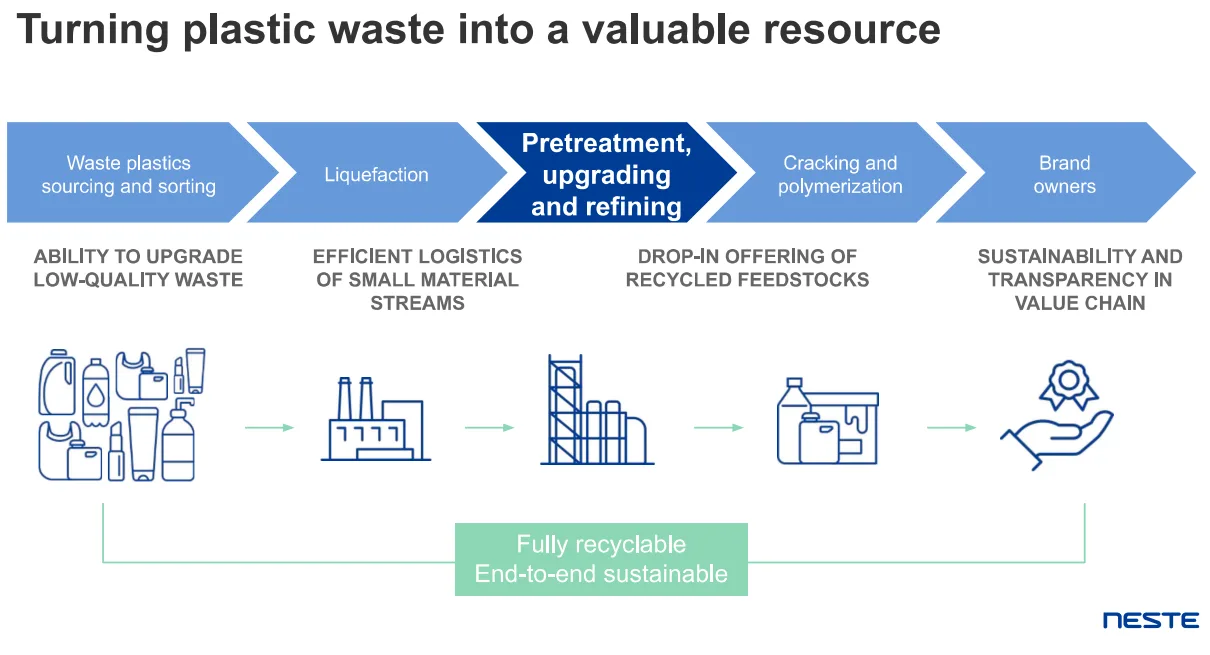Project "PULSE"

Project PULSE (“Pretreatment and Upgrading of Liquefied waste plastic to Scale up circular Economy”) is part of Neste’s activities to advance chemical recycling.
Chemical recycling turns waste plastic back into hydrocarbons that can be used as a raw material for the production of new plastics and chemicals, complementing existing recycling technologies, e.g. mechanical recycling. It helps to close the loop within a circular economy.
PULSE plays a major role in scaling up chemical recycling. The project aims to implement proprietary technologies to pretreat and upgrade liquefied waste plastic and integrate these technologies into Neste’s refinery operations in Porvoo, Finland. Pretreatment and upgrading is a crucial step in turning liquefied waste plastic into high-quality petrochemical feedstock.
Although liquefied waste plastic resembles crude oil, it contains impurities and chemical compositions that limit its use, as they lead to risks of corrosion, process inefficiency and poor end-product quality. PULSE bridges the quality gap between liquefied waste plastic oil and our customers’ raw material requirements by tackling these impurities and compositions. It enables broadening the waste plastic pool that can be chemically recycled and scaling up the production of chemically recycled materials.

Neste started refining liquefied waste plastic on an industrial scale in 2020, and has since processed increasing volumes in several runs. While unprocessed liquefied waste plastic is feasible in limited campaign runs, scaling up continuous processing will require the pretreatment and upgrading step to remove impurities and optimize the chemical composition. The targeted pretreatment and upgrading capacity of project PULSE is 400,000 tons per year. This capacity will be reached gradually by 2028.
PULSE aims at a total GHG emissions reduction of 10.3Mt CO2eq during its first ten years of operation - by diverting waste plastic away from incineration, which would release the carbon contained in waste into the atmosphere, and by replacing fossil resources in the manufacturing of new plastics and chemicals. At the same time, chemical recycling turns waste plastic into a valuable resource, combating waste plastic pollution.
Project PULSE is funded by the European Union with 135 million euros. EU Innovation Fund is one of the world’s largest funding programmes for the demonstration of innovative low-carbon technologies. In 2022, the Fund granted more than EUR 1.8 billion to 17 large-scale projects contributing to a low-carbon society. The grant agreement was signed by Neste and CINEA (Climate, Infrastructure and Environment Executive Agency of the European Commission) in early 2023.
In June 2023, Neste made a final investment decision to commence construction of upgrading facilities in Porvoo in the course of project PULSE. With the investment of 111 million euros, Neste will build the capacity to upgrade 150,000 tons of liquefied waste plastic per year. The new facility is planned to be finalized in the first half of 2025.
Das PULSE-Projekt wird von der Europäischen Union gefördert. Die geäußerten Ansichten und Meinungen entsprechen jedoch ausschließlich denen des Autors bzw. der Autoren und spiegeln nicht zwingend die der Europäischen Union oder der Europäischen Exekutivagentur für Klima, Infrastruktur und Umwelt (CINEA) wider. Weder die Europäische Union noch die Bewilligungsbehörde können dafür verantwortlich gemacht werden.
Neste ist der einzige Empfänger der Fördermittel der Europäischen Union für das PULSE-Projekt.
Share this